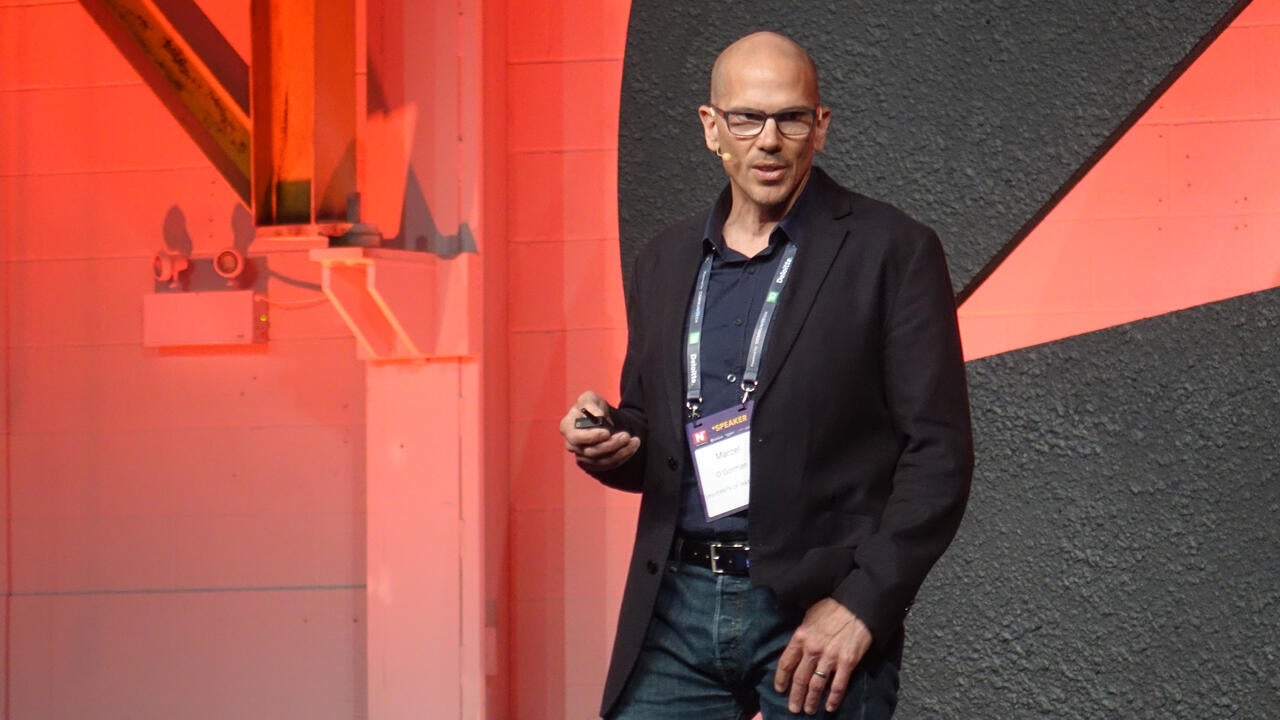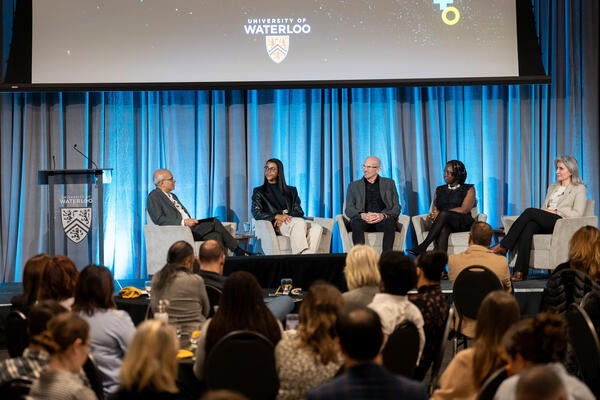
What happens when AI exceeds human intelligence?
University of Waterloo speakers at the True North conference ask attendees to explore their own biases about gender and the ethics of tech

University of Waterloo speakers at the True North conference ask attendees to explore their own biases about gender and the ethics of tech
By Staff University RelationsTo build technology that is good for society, ethical discussions have to happen at the research and development stage – not at the end of a project, says a Waterloo professor.
Marcel O’Gorman, a professor in Waterloo’s Faculty of Arts, told attendees at the True North Waterloo conference that this region has an opportunity to create an ethos and a culture that supports innovation that improves lives.
“We might want to stop and look around . . . to north Waterloo Mennonite communities who are living without tech and what they are doing to preserve community,” says O’Gorman, a professor in the Department of English Language and Literature and director of the University’s Critical Media Lab in downtown Kitchener.
“What is the ethos of a person or a community that wants to develop a type of intelligence that exceeds human intelligence?” he asked. True North Waterloo is a conference hosted by Communitech for innovators, entrepreneurs, academics and policymakers. The theme of the three-day conference is Tech For Good.
Michael Litt, a University of Waterloo alumnus and co-founder and CEO of Vidyard, took the main stage to explore the reasons the tech sector has become so male-dominated. Litt said women had worked in computing prior to the dawn of personal computers which were marketed primarily to men. “IBM tried to target the buyer of the household, which was the dad, to create a bonding experience between the dad and sons,” said Litt.
Litt pointed out that 75 per cent of people who create the algorithms that shape society’s artificial intelligence are men, so AI reflects their biases. He pointed out that a Google search for images of doctors will pull mostly photos of white men.
“What does that mean for the next generation of humanity?” he asked.
He urged the audience to explore their own biases, take part in conversations like True North, identify whether job postings have implicit gender bias, and to consult women about their experiences in the industry.
Photography courtesy of Lucas Dunlop.

Read more
Global Futures 2024 launch event engages dialogue and action on the world’s complex challenges

Read more
Here are the people and events behind some of this year’s most compelling Waterloo stories

Read more
Kicking off Global Entrepreneurship Week by looking at some Waterloo founded companies making a global impact
The University of Waterloo acknowledges that much of our work takes place on the traditional territory of the Neutral, Anishinaabeg and Haudenosaunee peoples. Our main campus is situated on the Haldimand Tract, the land granted to the Six Nations that includes six miles on each side of the Grand River. Our active work toward reconciliation takes place across our campuses through research, learning, teaching, and community building, and is co-ordinated within the Office of Indigenous Relations.